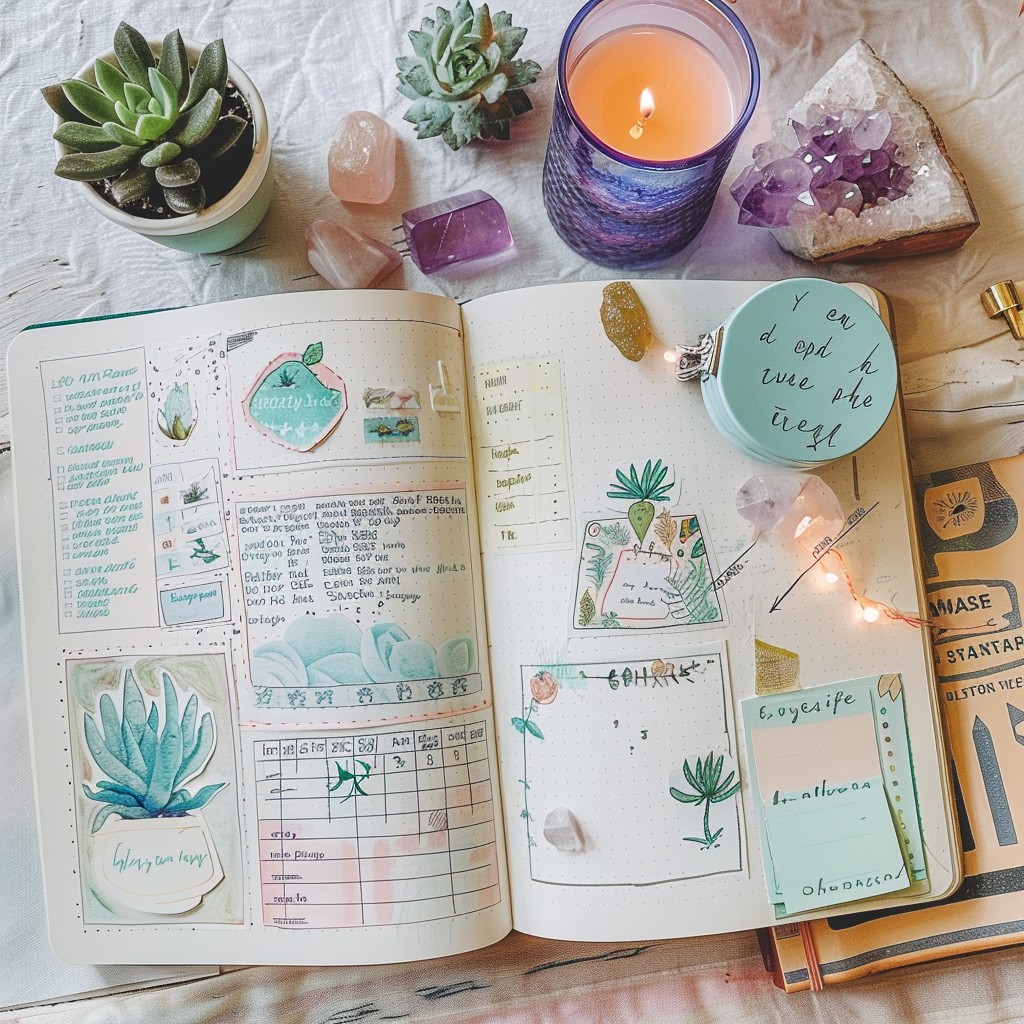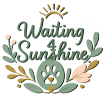
Bullet
Journaling: A Creative and Therapeutic Coping Tool
Bullet
journaling has become an invaluable tool for many people, including
myself, in managing mental health and enhancing overall well-being. At
Waiting 4 Sunshine, we recognize the transformative power of this
versatile practice. Discover how bullet journaling can be a creative,
therapeutic, and highly effective coping mechanism in your mental
health journey.
The
Benefits of Bullet Journaling
Bullet
journaling offers a myriad of benefits for mental health and personal
organization:
- Stress
Reduction: The act of writing and organizing your
thoughts can help reduce stress and provide clarity. It creates a
structured outlet for managing daily tasks and emotions.
- Enhanced
Focus and Productivity: Bullet journaling helps you
prioritize tasks, set goals, and track progress, which can improve
focus and productivity.
- Emotional
Expression: Journaling provides a safe space for
expressing emotions, processing experiences, and reflecting on personal
growth.
- Mindfulness
and Presence: The practice encourages mindfulness by
helping you stay present and engaged with your daily activities and
mental state.
- Creativity
and Enjoyment: Customizing your bullet journal with
doodles, colors, and layouts can be a fun and creative outlet that
brings joy and relaxation.
How
to Get Started with Bullet Journaling
Starting
a bullet journal is simple and can be tailored to suit your personal
preferences and needs. Here’s a step-by-step guide to help you begin:
-
Choose
Your Supplies:
- Journal:
Select a notebook that you enjoy using. Many people prefer dotted or
grid notebooks for the flexibility they offer in creating layouts.
- Pens
and Markers: Use pens, markers, and other writing tools
that you like. Different colors and types of pens can make journaling
more enjoyable and visually appealing.
-
Learn
the Basics:
- The
bullet journal system uses a few key components:
- Index:
A table of contents to help you quickly find important pages.
- Future
Log: A place to record future events, goals, and tasks.
- Monthly
Log: A calendar and task list for each month.
- Daily
Log: A daily record of tasks, events, and notes.
- Rapid
Logging: Use symbols (bullets, circles, dashes) to
categorize tasks, events, and notes.
-
Customize
Your Layouts:
- Create
layouts that work for you. Some popular options include habit trackers,
mood trackers, gratitude logs, and weekly planners. Feel free to
experiment and find what suits your needs.
-
Incorporate
Creative Elements:
- Enhance
your journal with doodles, stickers, washi tape, and other decorative
elements. This can make the process more enjoyable and encourage you to
stick with it.
Tips
for Effective Bullet Journaling
To
make the most of your bullet journaling practice, consider these tips:
- Be
Consistent: Dedicate a few minutes each day to update
your journal. Consistency helps you stay organized and mindful of your
goals.
- Stay
Flexible: Your bullet journal is a personal tool, so
adapt it to fit your changing needs. Don’t be afraid to modify layouts
or try new techniques.
- Reflect
Regularly: Take time to review your entries, reflect on
your progress, and celebrate your achievements. Reflection helps
reinforce positive habits and personal growth.
- Use
It for Mental Health: Incorporate mental health-focused
pages, such as mood trackers, gratitude logs, and affirmations. These
can help you monitor and improve your mental well-being.
- Keep
it Positive: Focus on the positive aspects of your life
and use your journal to cultivate gratitude and positivity.
Bullet
Journaling Ideas for Mental Health
Here
are some specific bullet journaling ideas to support your mental health:
- Mood
Tracker: Track your daily mood to identify patterns and
triggers. This can help you understand your emotions better and manage
them more effectively.
- Gratitude
Log: Write down things you’re grateful for each day.
This practice can boost your mood and overall sense of well-being.
- Habit
Tracker: Monitor habits that contribute to your mental
health, such as exercise, meditation, and sleep. Seeing your progress
can motivate you to maintain healthy habits.
- Self-Care
Planner: Plan and schedule self-care activities to
ensure you’re taking time for yourself regularly.
- Affirmations
Page: Write down positive affirmations and revisit them
daily to build self-confidence and resilience.
Resources
Here
are some resources to help you get started with bullet journaling:
Bullet
journaling is a powerful tool that can help you manage your mental
health, stay organized, and express your creativity. At Waiting 4
Sunshine, we celebrate the benefits of this versatile practice and
encourage you to explore how it can enhance your life. Start your
bullet journaling journey today and discover the joy and clarity it can
bring.
|

